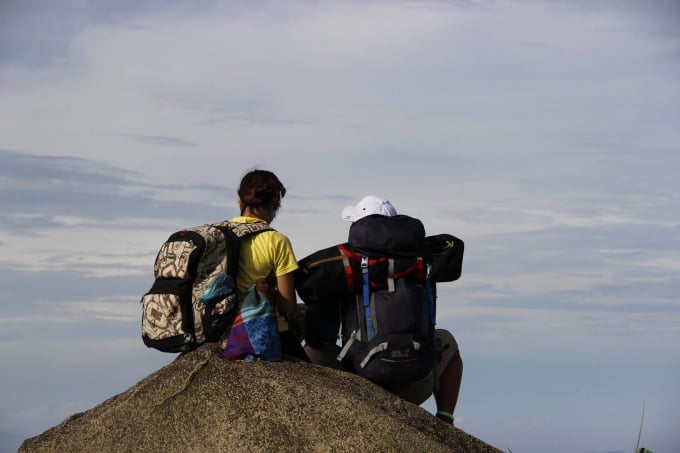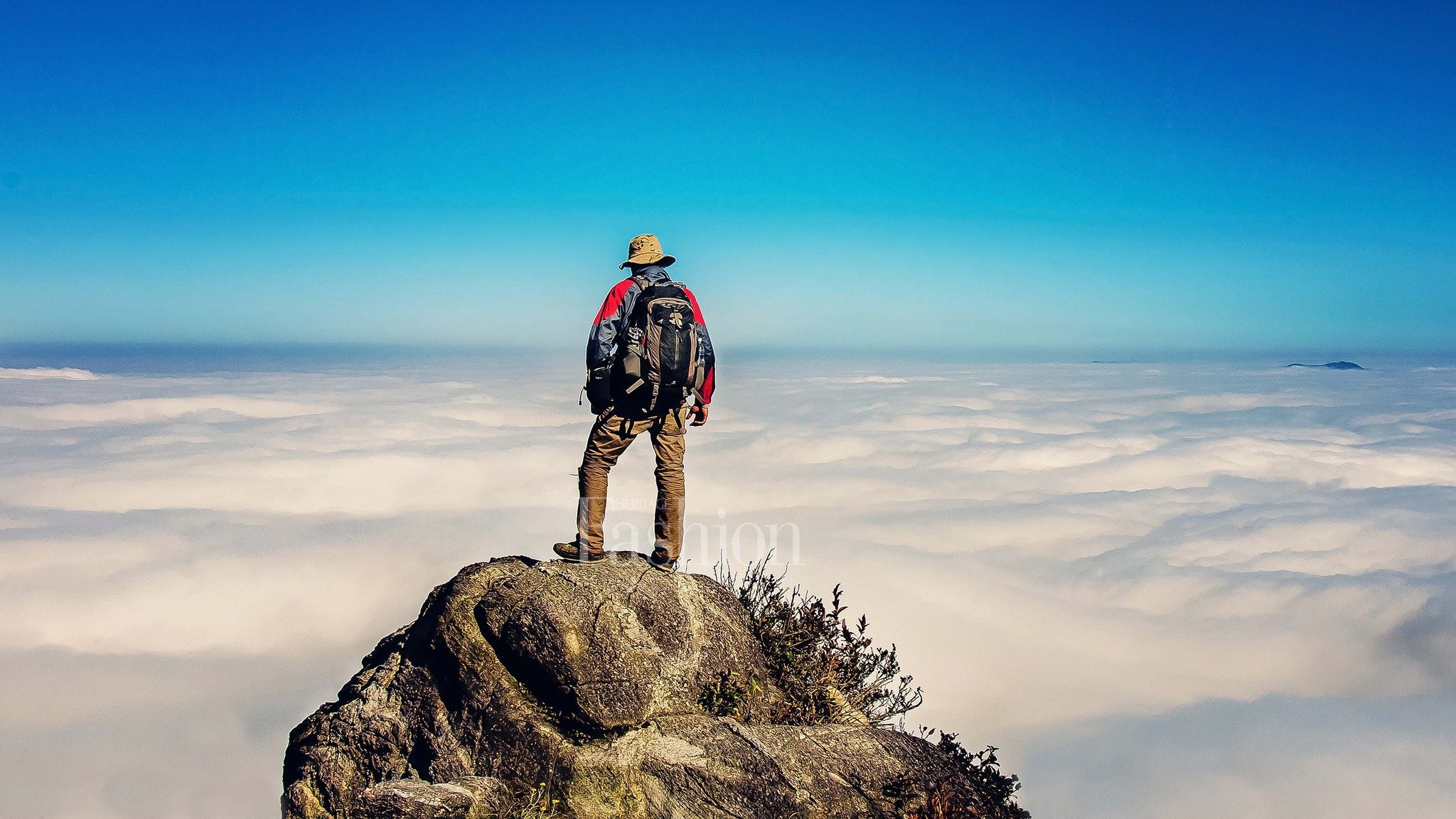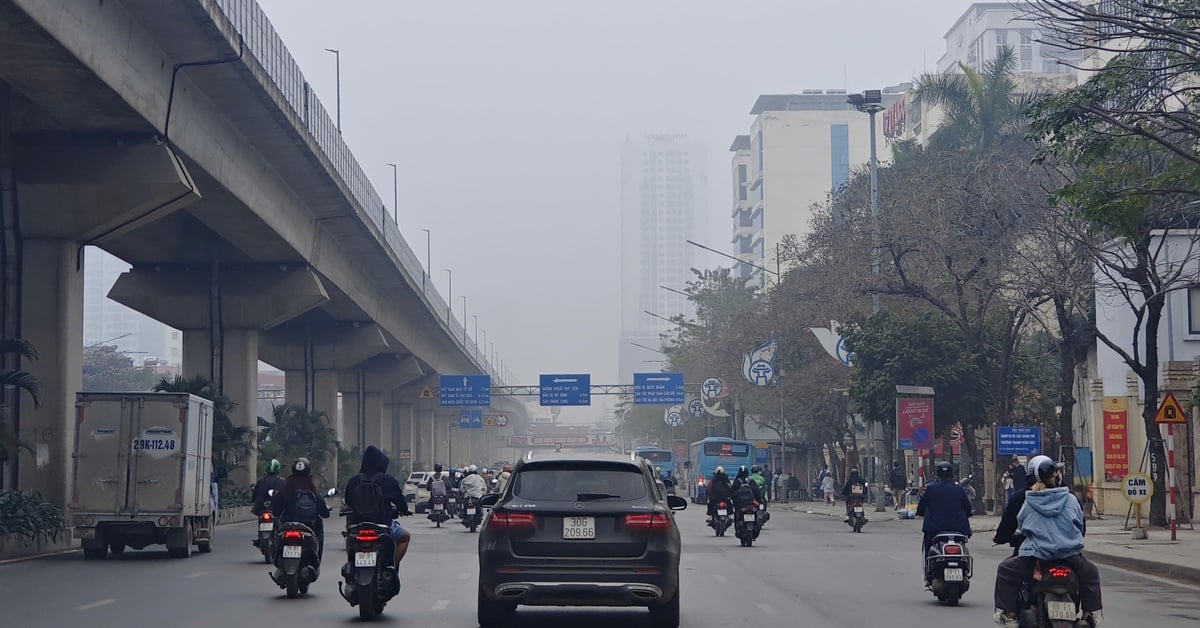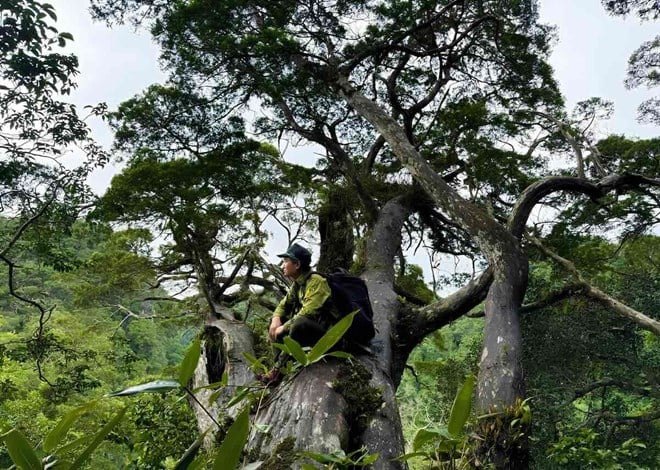Changes in air pressure cause insufficient oxygen supply to the body, making it difficult to breathe, causing rapid heartbeat, headaches, and nausea.
Some people experience headaches when they change altitude, such as when flying, riding a cable car, or climbing a mountain. This condition is called altitude sickness, and is caused by changes in air pressure.
The human lungs and circulatory system function normally in atmospheric conditions at sea level. The air near the ground contains more oxygen. When people go to high altitudes, the air pressure decreases, the air contains less oxygen, making it difficult for the lungs to breathe.
At altitudes above 2,500 m above sea level, that is, the altitude when climbing mountains or flying, many people have difficulty breathing and their heart rate increases rapidly. This is to provide enough oxygen to the body's organs, leading to headaches and nausea. The higher the altitude, the lower the amount of oxygen in the air, making headaches worse.
The level of pain depends on the speed of the climb as well as the time of the change in altitude. If the time from the ground to the height is fast, the possibility of severe and prolonged headaches is due to the body not having time to adapt to the sudden change in air. Conversely, if the speed of the climb is slow, the risk of pain may be less.

Changing altitude when climbing mountains can easily cause headaches. Photo: Quynh Quynh
Altitude headaches typically occur on both sides of the head and may be accompanied by other symptoms such as shortness of breath, coughing, and weakness in the limbs. The pain usually subsides after 24 hours or when you return to an altitude below 2,000 m or sea level.
To prevent headaches, climbers should climb slowly, not overexert themselves, and rest properly. In case of altitude changes when traveling by plane, cable car, or other activities, they should drink more water than usual, more than two liters per day. Increase the amount of carbohydrates in the diet in the days before having to change altitude. Some foods rich in healthy carbohydrates for the body are barley, legumes, sweet potatoes, brown rice, etc.
Adults can also get tension headaches before climbing mountains or flying. Keep your mind relaxed and happy to avoid the risk of headaches.
Cigarettes and alcohol make it harder for the body to get used to higher altitudes, which is bad for your health. Avoid drinking alcohol and smoking before these trips. If necessary, bring a portable oxygen tank to supplement oxygen at high altitudes, reducing headaches.
Anh Chi (According to WebMD )
| Readers ask questions about neurological diseases here for doctors to answer |
Source link


![[Photo] 2nd Conference of the Party Executive Committee of Central Party Agencies](https://vstatic.vietnam.vn/vietnam/resource/IMAGE/2025/3/31/8f85b88962b34701ac511682b09b1e0d)

![[Photo] Prime Minister Pham Minh Chinh receives delegation of leaders of US universities](https://vstatic.vietnam.vn/vietnam/resource/IMAGE/2025/3/31/8be7f6be90624512b385fd1690124eaa)

![[Photo] Speeding up construction of Ring Road 3 and Bien Hoa-Vung Tau Expressway](https://vstatic.vietnam.vn/vietnam/resource/IMAGE/2025/3/31/f1431fbe7d604caba041f84a718ccef7)
![[Photo] General Secretary To Lam receives US Ambassador to Vietnam Marc E. Knapper](https://vstatic.vietnam.vn/vietnam/resource/IMAGE/2025/3/31/5ee45ded5fd548a685618a0b67c42970)


























































































![[REVIEW OCOP] An Lanh Huong Vet Yen Cat](https://vstatic.vietnam.vn/vietnam/resource/IMAGE/2025/3/27/c25032328e9a47be9991d5be7c0cad8c)

Comment (0)